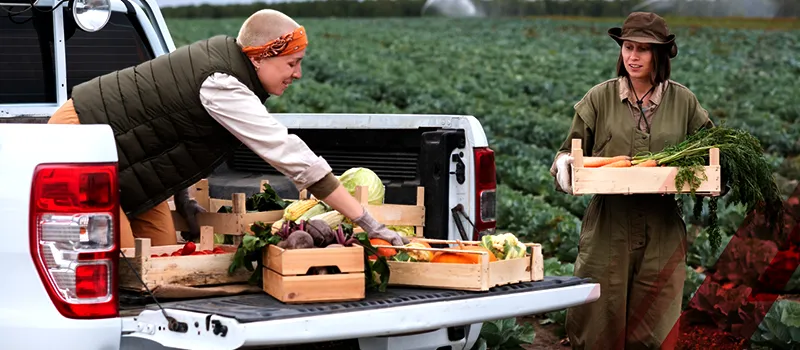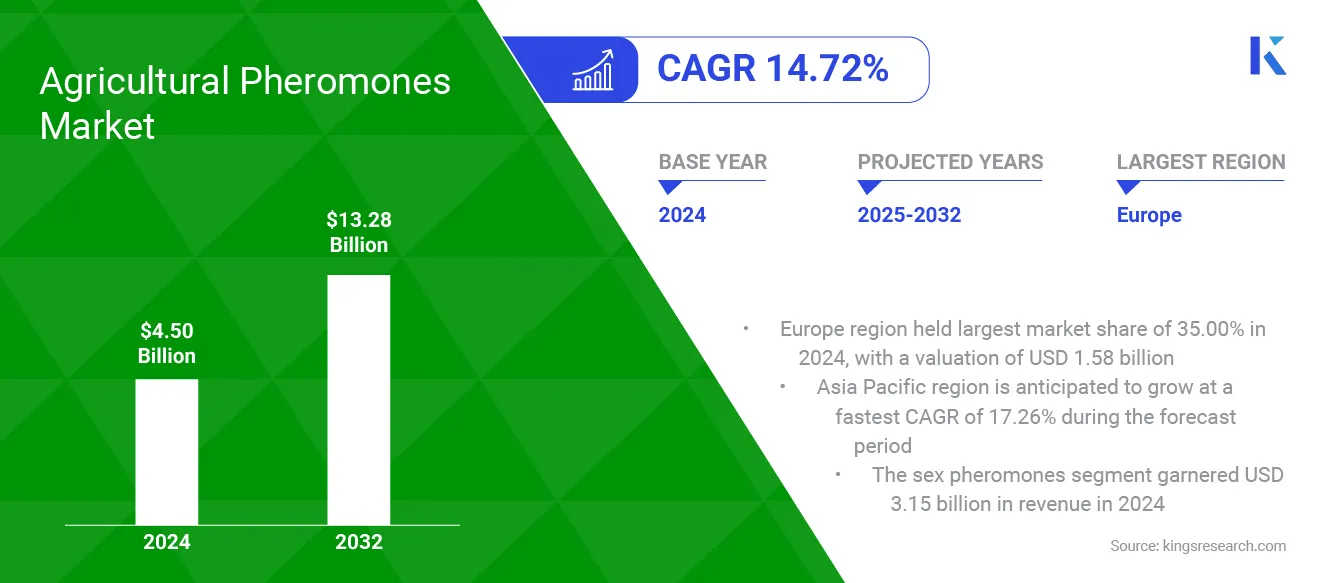Picture this: a flourishing farm, alive with the vibrant colors of nature, where hardworking farmers work under the sun to bring forth a plentiful harvest from the land. Now imagine that same farm seamlessly connected to your plate, ensuring that every bite you take is a testament to the dedication and innovation behind the scenes.
Let's step into the realm of agricultural supply chain services, where farmers are paving the way for food to reach your table.
What Exactly is Agricultural Supply Chain Service?
We know you’re curious, so let’s not wait and dig in.
Agricultural supply chain service refers to the range of services and activities involved in the transport and management of agricultural products from the producer to the end consumer. These services include activities such as sourcing inputs, production, processing, packaging, distribution, and marketing of agricultural goods.
Along with it, the agricultural supply chain service providers also play a crucial role in ensuring the smooth and efficient flow of products throughout the supply chain, optimizing logistics, reducing waste, and enhancing overall productivity and profitability in the agricultural sector. These services are focused on transportation, warehousing, inventory management, quality control, traceability, and market intelligence, among others.
Significance of Supply Chain Services in Agriculture
Agricultural supply chain management (SCM) oversees the production and distribution of various farm products such as fruits, vegetables, and animal-based items. It encompasses a wide range of stakeholders, including farmers, transporters, retailers, suppliers, and consumers.
The agricultural supply chain also includes services such as new product development, operations, logistics, finance, marketing, and customer service. A well-coordinated supply chain necessitates strong relationships between producers, traders, processors, and buyers.
Consumers in countries like the United States are choosing products, like fruits, vegetables, and animal protein, because of increased disposable income. As a result, governments in these developed economies are taking steps to encourage private investment in agricultural marketing infrastructure.
They are reducing entry barriers and promoting coordinated supply chains. In India, for example, various states have implemented the amended APMR Act, which seeks to facilitate the establishment of private markets, contract farming, and direct marketing.
A recent report published by Kings Research states that the global agricultural supply chain service market is likely to accrue revenue of $1,822.4 million by 2030.
Recent Innovations by Leading Players in Agricultural Supply Chain Service
Well, the agricultural supply chain service industry has witnessed several recent innovations by leading players. These innovations aim to optimize processes, enhance efficiency, and ensure sustainability in agricultural supply chains. We will take a closer look at some notable innovations by leading players:
1. Digital Twin
The digital twin technology empowers farmers and agricultural professionals with valuable insights, enabling them to make data-driven decisions, optimize operations, and contribute to a more efficient and sustainable agriculture industry.
For instance, McKinsey emphasizes the potential of digital and analytics technologies to create a digital twin of the physical agricultural supply chain. This digital twin enhances agricultural operations with its cutting-edge virtual simulations and optimization strategies.
2. Blockchain Technology
Blockchain technology has the potential to revolutionize agricultural supply chain management. It provides a decentralized and transparent platform for recording and verifying transactions, ensuring traceability, and reducing fraud. Blockchain can enhance trust, improve food safety, and enable efficient supply chain tracking from farm to fork.
Companies like IBM, AgriDigital, and Provenance have leveraged blockchain technology to bring better clarity and traceability to agricultural supply chains.
3. Internet of Things (IoT) Solutions
In agriculture, IoT sensors and devices can collect and transmit data from various stages of the supply chain, enabling real-time monitoring, stock management, and quality control.
Leading companies such as Bosch, Trimble, and John Deere offer IoT solutions for agriculture. These solutions integrate IoT devices and sensors into the supply chain, providing real-time data for better monitoring, inventory management, and control of product quality.
4. Collaborative Platforms
Collaborative platforms and digital marketplaces have emerged to connect farmers, suppliers, distributors, and retailers. These systems let farmers access more markets, expedite transactions, and enable direct communication. They also provide insights and analytics to optimize supply chain operations.
These platforms, such as AgriDigital, Farmdrop, and OpenSC, help farmers facilitate direct communication, streamline transactions, and increase accessibility in the market.
5. Government Support
Government organizations and agricultural departments play a crucial role in promoting and supporting innovations in agricultural supply chain services. They provide funding, resources, and policy support to encourage the adoption of sustainable and efficient practices.
One such organization closely looking into agricultural growth and development is the OECD. It has released the OECD-FAO Guidance for Responsible Agricultural Supply Chains, which provides a global framework for agribusinesses and investors to identify and mitigate adverse impacts in the agricultural supply chain.
Beyond the Fields
We learned that agricultural supply chain services are heroes who flawlessly link farms to our plates, guaranteeing that every morsel we savor is fulfilling and leading us to a healthy life. It is also bridging the gap by connecting farmers, suppliers, and consumers with transparency, efficiency, and sustainability.
With the technical innovations in IoT, digital twins, blockchain, and government support, we can look forward to a future where our meals are not only delicious but also the epitome of the collaborative efforts that sustain our agricultural ecosystem.




